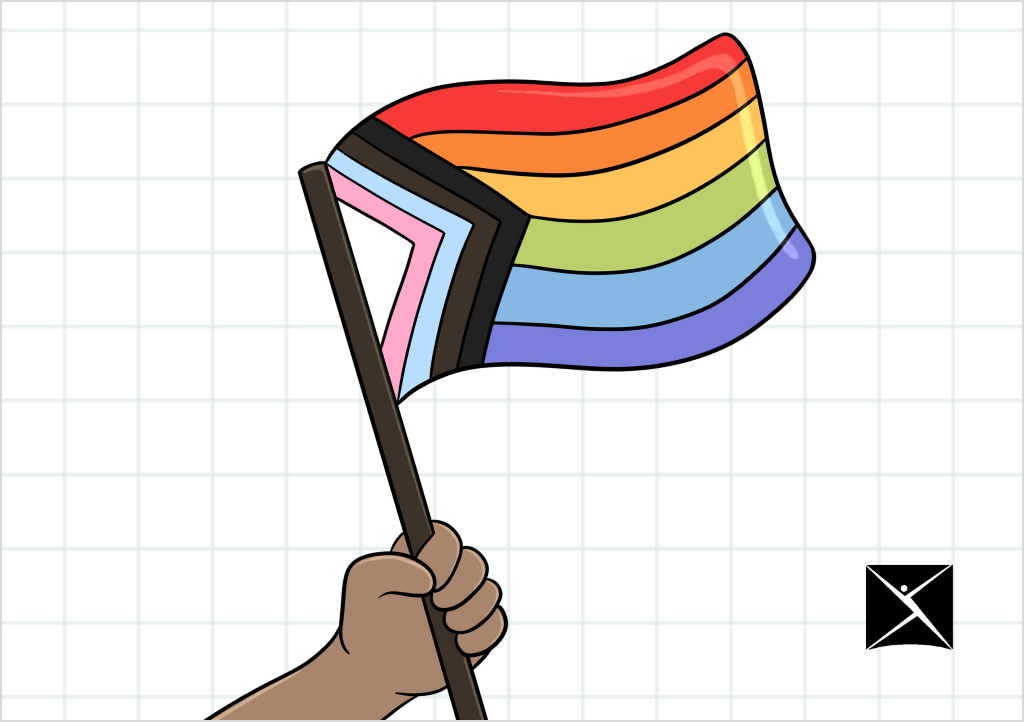Menu
Close

Let the kids be who they are – without fear
Oct 16, 2023
The Canadian Mental Health Association (CMHA) believes that every child deserves to feel proud of who they are and to embrace their true selves, no matter who they are, where they are from, or what they look like. We affirm the right of children to express their gender identity and to live, study and play in safe and inclusive environments where they are seen and heard for who they are. When we support children to be themselves, we are upholding their rights to safety, self-determination and non-discrimination, and are fostering their mental health and well-being.
When children are free to express themselves and are accepted for who they are, they experience a sense of belonging that nurtures their mental well-being. This is true for all children and youth, no matter how they look, behave or present themselves and applies regardless of how they express their gender or whether they show signs of difference. Young people, like all of us, thrive when they belong, and are impacted by all forms of gender, race, culture- and faith-based discrimination.
CMHA is concerned that escalating misinformation and hateful speech about gender minorities threaten their rights, safety and well-being. This includes trans people and those who identify as non-binary and Two-spirit.
When their identities are not socially or legally recognized, children with diverse gender identities face violence, discrimination, and harassment as well as stigma and institutional forms of marginalization.[i] Trans youth report being physically threatened or harmed at twice the rate of cisgender LGBQ youth.[ii]
The mental health facts are also devastating: trans and non-binary youth are 7.6 times more likely to have attempted suicide compared to cisgender youth; they are more likely to harm themselves; and they report rates of clinical depression as high as 68%, compared to the global prevalence of 3.8%.[iii]
Supporting children promotes their mental health
Childhood is a critical time to explore identity and one’s sense of self in the world, including one’s culture, heritage, and gender. Having safe, loving environments helps build a foundation for positive self-identity and good mental health. Research shows that the support of parents, family, caring friends, as well as strong connections at school help protect trans and gender-diverse children from psychological distress, post-traumatic stress disorder, depression, suicide, and eating disorders. When supported, these children are also more likely to stay and succeed at school.[iv]
The diverse expression of gender is part of the rich tapestry of human experience, as are all forms of diversity.[v] Just as we want to encourage children in their cultural or language-based identities, and support children who have different abilities, so too is it important to affirm young people’s gender identities. It is imperative for our mental well-being that we be loved and accepted for who we are, including how we express our gender identity.
When trans and gender-diverse children are loved, accepted, and given space to be themselves, they can flourish.
In support of children’s mental health, CMHA calls on parents, teachers, caregivers, community members and healthcare providers to ensure that we are all working together to promote acceptance, inclusion, safety and full participation for all children, regardless of how they look, or who they are.
[i] Jan M.A. de Vries, Carmel Downes, Danika Sharek, Louise Doyle, Rebecca Murphy, Thelma Begley, Edward McCann, Fintan Sheerin, Siobhan Smyth and Agnes Higgins, “An Exploration of Mental Distress in Transgender People in Ireland with Reference to Minority Stress and Dissonance Theory,” International Journal of Transgender Health (2002). https://www.tandfonline.com
[ii] Myeshia Price-Feeney, Amy E. Gree, and Samuel Dorison, “Understanding the Mental Health of Transgender and Nonbinary Youth,” Journal of Adolescent Health 66 (2014). https://www.transyouthadvocacylibrary.org
[iii] Mila Kingbury, Nicole G. Hammond, Far Johnstone, and Ian Colman, “Suicidality among Sexual Minority and Transgender Adolescents: A Nationally Representative Population-based Study of Youth in Canada,” CMAJ 6 (2022): E767-E774; Jaimie F. Veale, Ryan J. Watson, Tracey Peter and Elizabeth M. Saewyc, “The Mental Health of Canadian Transgender Youth Compared with the Canadian Population,” Journal of Adolescent Health 60.1 (2017): 44-49.
[iv] Ryan J. Watson, Jaimie F. Veale, Elizabeth M. Saewyc, “Disordered Eating Behaviors among Transgender Youth: Probability Profiles from Risk and Protective Factors,” International Journal of Eating Disorders 50.5 (2017): 515-522; Michelle Marie Johns, Oscar Beltran, Heather L. Armstrong, Paula E. Jayne and Lisa Barrios, “Protective Factors among Transgender and Gender Variant Youth: A Systemic Review by Socioecological Level,” The Journal of Primary Prevention 39.3 (2018): 263-301.
[v] Lisa M. Diamond, “Gender Fluidity and Nonbinary Gender Identities Among Children and Adolescents,” Child Development Perspectives, 0.0 (2020): 1-6.
